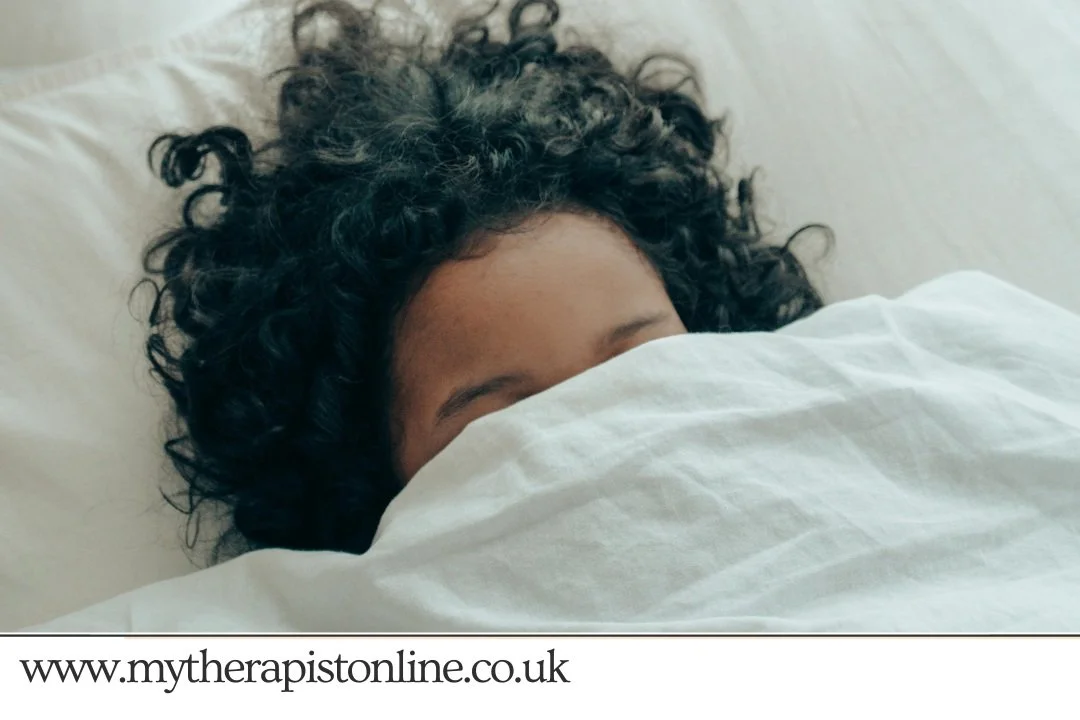This article tackles the widespread issue of nighttime anxiety and its detrimental effect on sleep, highlighting the cognitive-behavioural feedback loop that fuels sleep disturbances. It underscores Cognitive Behavioural Therapy (CBT) as an effective remedy, with My Therapist Online (MTO) offering specialised therapists for personalised support.
It points out the efficacy of self-help strategies, complemented by the specialised guidance from MTO's expert therapists, as essential for breaking the anxiety-sleep issue cycle. The conclusion affirms that with strategic behavioural and environmental adjustments, supported by professional therapy, achieving quality sleep in the face of nighttime anxiety is within reach.



